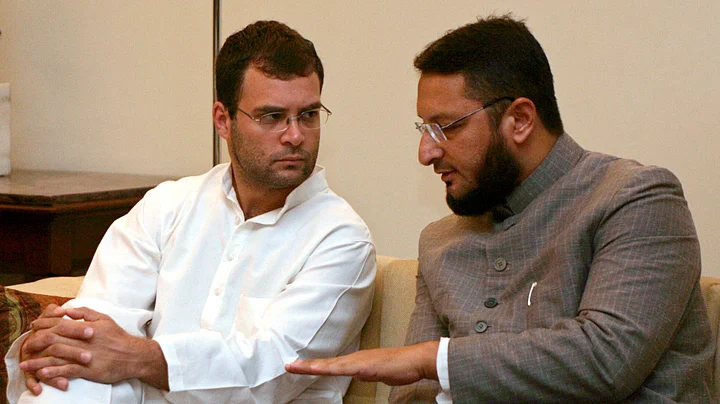Assadudin Owaisi’s All India Majlis-e-Ittehadul Muslimeen (MIM) has nearly wiped out the Congress and NCP in the Aurangabad Municipal Council elections. The Hyderabad based MIM managed 25 seats in the 113 member council. The BJP-Shiv Sena combine emerged as the single largest party with 51 seats. The Congress managed just 10 seats and the NCP a paltry four.
The only other almost exclusively Muslim Party is Badraddin Ajmal’s Assam United Democratic front, which also enjoys considerable popularity among Muslims in Assam.
The consolidation of the Muslim vote behind Owaisi is a worrying sign for India as a whole and Muslims in particular. If the trend continues, It could mark a move towards a polarised, segregated electorate, which in the long run, can only hurt the country.
The Chequered History of Communal Electorates
One of the principal pillars of the Raj’s ‘Divide and Rule’ policy in India was the creation of separate electorates along religious lines. Basically, Muslims would only vote for Muslim candidates, Hindus for Hindus and so on.
The move to a true representative democracy, based on universal adult franchise and a common electorate for all Indians was something the founding fathers insisted on. In the era of Congress dominance following independence, the Muslim vote stayed largely with the Grand Old Party. Even during Janata Party and Third Front governments, there was no exclusively Muslim party that played a significant role in politics.
The polarisation of Muslims, particularly during General Elections began in the 1990s. The Ramjanmabhoomi movement, the demolition of the Babri Masjid and the meteoric rise of the BJP and its Hindutva agenda made Muslims vote as a bloc.
Even in state polls, no ‘exclusively Muslim’ party has done well. The Samajwadi Party, for example, enjoys a considerable loyalty from Muslims in Uttar Pradesh, but they are far from being a Muslim party.
The Dangers of MIM
The MIM has just one seat in the Lok Sabha and a small presence in the Telangana and Maharashtra assemblies. But increasingly, Assadudin Owaisi has become a prominent voice articulating Muslim concerns and grievances.
The huge mandate for Narendra Modi and the BJP may well lead Muslims to get behind an exclusively Muslim party. The idea is a disastrous one.
At over 10% of the vote, the Muslims can literally make or break a government. Just to put that into perspective, the BJP’s massive majority in Parliament was on the back of just 31% of the vote.
Muslims though, are a dispersed population, spread all over the country. The best way to make their vote count is by forming electoral and social alliances. The Congress at the centre and various secular parties in the states are viable candidates.
The blatantly communal statements being made by members of the RSS, Shiv Sena and VHP, among others, some insecurity among minorities is understandable.
Minority Issues Should be National Issues
By shifting their vote away from mainstream secular parties, Muslims risk becoming less relevant to the arithmetic of electoral politics.
But more importantly, a consolidation of India’s largest minority behind an exclusively sectarian outfit will only strengthen majoritarian tendencies in our politics.
If secular parties feel that the Muslim vote is no longer up for grabs, they are likely to move further right to try and grab the so-called Hindu vote. We have seen glimpses of this time and again in the Congress’ ‘soft Hindutva’ campaigns.
For a little while, it seemed that the Sangh Parivaar’s rise would be unstoppable. But that has not been the case. The fear, that with the BJP’s vast majority, we would see an unchallenged right-wing government were misplaced.
The debate over the Land Bill in parliament has finally brought about a robust opposition. It is important that the Muslims of India stay with the national parties. Their electoral strength is also likely to push the BJP to the centre, as it did in Vajpayee’s time, making the party palatable to minorities. The 10% vote can also significantly strengthen the opposition in elections to come, not just for the sake of political relevance, but to maintain the secular character of India.
